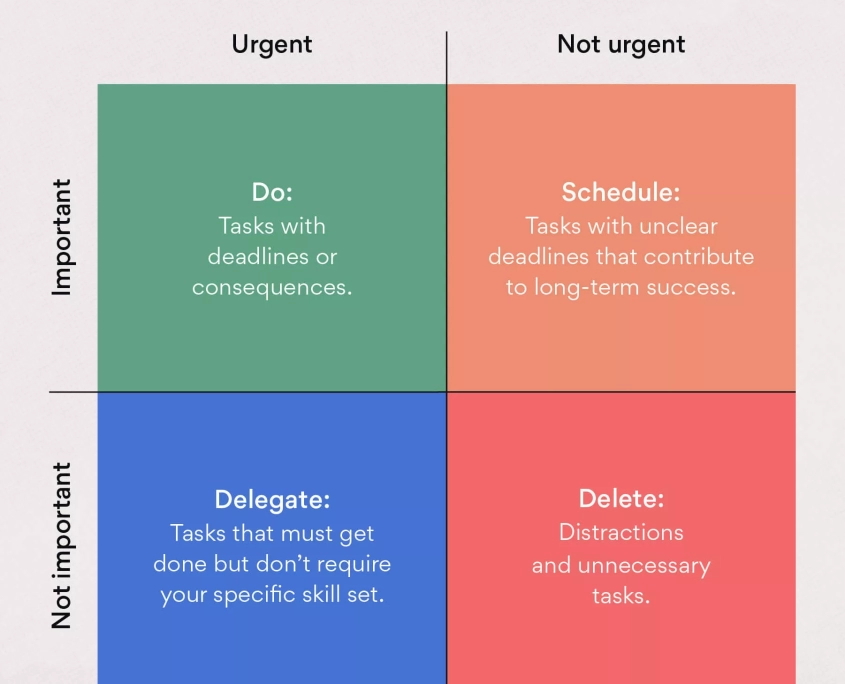For farmers, time management is more than just a skill—it’s a necessity. With long work hours, unpredictable schedules, and constant responsibilities, managing time well can be the difference between feeling overwhelmed and finding balance. In this article, we share six time management strategies designed to help farmers reclaim their time and increase productivity without sacrificing well-being.
1. Assess How You Spend Your Time
The first step to better time management is understanding where your time goes. Spend a few days tracking your activities, noting both farm tasks and any “lost” time—whether that’s getting sidetracked or overfocusing on low-impact tasks. Look for patterns and ask yourself:
- Which activities consume more time than they should?
- Are there repetitive tasks that could be consolidated or automated?
- How much time do you spend on urgent issues versus strategic tasks?
Once you have this baseline, you can start making intentional adjustments to your schedule, cutting down on inefficiencies and focusing on what matters.
2. Prioritise Tasks That Drive Results
Not all tasks are created equal. Many farmers find themselves bogged down with duties that may feel urgent but contribute little to long-term goals. Techniques like the Eisenhower Matrix can help you categorise tasks into four quadrants:
- Urgent and Important (handle immediately),
- Important but Not Urgent (schedule time to focus on these proactively),
- Urgent but Not Important (delegate if possible),
- Not Urgent and Not Important (limit or eliminate).
By regularly reviewing your task list and aligning it with your farm’s goals, you’ll develop the habit of prioritising activities that make a real impact.
Pro-Tip: Set aside a dedicated block of time each week for the “Important but Not Urgent” tasks. This keeps you proactive instead of constantly reacting to crises.
3. Delegate and Outsource Where Possible
Many farmers struggle with delegation, often feeling like they need to do everything themselves. However, freeing up time often means entrusting tasks to others. Evaluate which tasks can be handled by employees, family members, or even outside contractors. Focus your time on what only you can do, such as key decision-making or planning.
Effective delegation involves not only assigning tasks but also ensuring your team has clear instructions and the resources they need to be successful. This investment in your team’s capability ultimately gives you more time to focus on strategic planning.
4. Implement Time Blocking and a Structured Schedule
Time blocking is a powerful technique that involves setting aside specific time blocks for various activities. This method improves focus, reduces decision fatigue, and ensures you allocate time to both high-priority tasks and personal breaks.
Create a flexible but structured schedule. For example:
- Early Morning: Use this time for personal care and handling high-energy tasks like farm management and planning.
- Late Morning to Early Afternoon: Address fieldwork or machinery tasks.
- Mid-Afternoon: Administrative tasks, communication, or catch-ups with your team.
- Evening: Use this time for family, personal care, and rest.
Building a routine that respects both work and downtime keeps you grounded and prevents burnout.
5. Use Technology and Automation to Streamline Tasks
Technology has made it easier than ever to handle time-consuming tasks efficiently. From automated feeding systems to digital record-keeping and farm management software, there are tools available to simplify almost every aspect of farm work. Here are some examples:
- Farm Management Software: These tools can help track yields, expenses, and schedules.
- Automated Machinery: GPS-guided tractors, automated irrigation systems, and drones for field analysis save hours of manual work.
- Mobile Apps: Apps for tracking inventory, scheduling maintenance, or managing payroll can help keep things organised on the go.
Taking advantage of these tools reduces your workload, giving you more time to focus on strategic areas of the farm or to take well-deserved breaks.

6. Establish Boundaries and Prioritise Self-Care
Setting boundaries is crucial for a sustainable work-life balance, especially when you live where you work. Establish clear “off-hours” when you step away from farm work to recharge. Self-care could include physical activities like walking or exercising, spending time with family, or indulging in hobbies that take your mind off daily responsibilities.
Additionally, setting boundaries might mean saying no to extra tasks that don’t align with your priorities or personal well-being. Creating and maintaining a sustainable routine that includes regular breaks will help you stay energised, focused, and ready to tackle farm challenges.
Taking Control of Your Time
By applying these time management strategies, you can transform the way you approach farm life. Implementing even a few of these techniques will make a noticeable difference in your productivity and well-being. If you’re ready to take control of your time and achieve a balanced, fulfilling farm life, Access our ‘Farmers’ Ultimate Freedom Checklist’ for FREE to kick-start effective time management and achieve a balanced, more productive farm life today!
If you found this article helpful, share it with your network to help others unlock their farming potential. Don’t forget to like and follow us on social media for more insightful tips: Facebook, Instagram, and LinkedIn. Let’s empower more farmers together!

 Enable Ag
Enable Ag Enable Ag
Enable Ag

